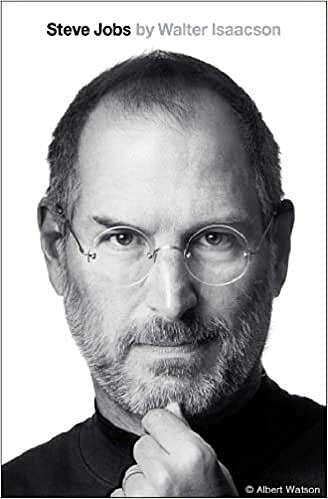
My highlights from this book:
1. Jobs’ intensity was also evident in his ability to focus. He would set priorities, aim his laser attention on them, and filter out distractions.
2. “There is something indefinable in an entrepreneur, and I saw that in Steve,” Nolan Bushnell said. “I taught him that if you act like you can do something, then it will work. I told him, ‘Pretend to be completely in control and people will assume that you are.’”
3. The only instructions for Atari’s Star Trek game were “1. Insert quarter. 2. Avoid Klingons.” The Atari experience helped shape Jobs’s approach to business and design.
4. I read something that one of my heroes, Edwin Land of Polaroid, said about the importance of people who could stand at the intersection of humanities and sciences, and I decided that’s what I wanted to do.
5. My passion has been to build an enduring company where people were motivated to make great products. Everything else was secondary.
6. He made devices simpler by eliminating buttons, software simpler by eliminating features, and interfaces simpler by eliminating options.
7. Some leaders push innovations by being good at the big picture. Others do so by mastering details. Jobs did both, relentlessly.
8. I hate it when people call themselves “entrepreneurs” when what they’re really trying to do is launch a startup and then sell or go public, so they can cash in and move on. They’re unwilling to do the work it takes to build a real company, which is the hardest work in business. That’s how you really make a contribution and add to the legacy of those who went before. You build a company that will still stand for something a generation or two from now. That’s what Walt Disney did, and Hewlett and Packard, and the people who built Intel. They created a company to last, not just to make money. That’s what I want Apple to be.
9. Some people say, “Give the customers what they want.” But that’s not my approach. Our job is to figure out what they’re going to want before they do. People don’t know what they want until you show it to them. That’s why I never rely on market research. Our task is to read things that are not yet on the page.
10. What drove me? I think most creative people want to express appreciation for being able to take advantage of the work that’s been done by others before us. I didn’t invent the language or mathematics I use. I make little of my own food, none of my own clothes. Everything I do depends on other members of our species and the shoulders that we stand on. And a lot of us want to contribute something back to our species and to add something to the flow. It’s about trying to express something in the only way that most of us know how — because we can’t write Bob Dylan songs or Tom Stoppard plays. We try to use the talents we do have to express our deep feelings, to show our appreciation of all the contributions that came before us, and to add something to that flow. That’s what has driven me.
Every week I read a biography of an entrepreneur and share the key insights on Founders podcast.